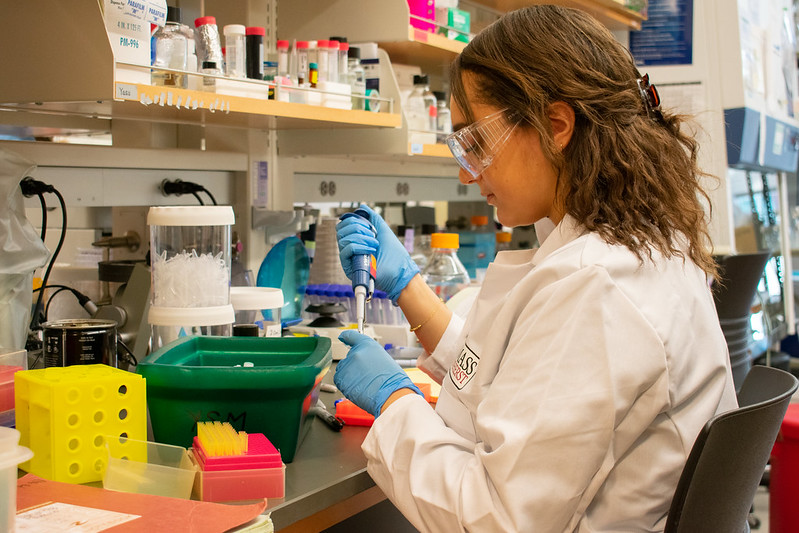At as school as large as the University of Massachusetts, it’s hard not to get lost in the crowd of 22,000 undergraduates and to stand out. Whether this applies to internships, jobs or even for leadership roles in clubs or organizations, there are so many students on campus competing for the same positions. One area of undergraduate involvement that seems to be lacking in competition is research involvement on campus, despite almost all professors in need of undergraduate help.
Since UMass is a public research university, every member of the faculty must be actively engaged in research. With approximately 1,300 full-time instructional faculty, many of these professors are in need of research assistants and there are plenty of opportunities for students to get involved with research.
I’m not sure if students’ reluctance to get involved in research is because undergraduates are daunted by the idea of working closely with faculty, or if they think that research work is only for graduate students, but undergraduates should not be deterred from reaching out to professors in their area of interest for research opportunities. When I was a senior in high school, I toured almost 20 schools. One of the most emphasized aspects of any college was the ability for undergraduates to participate in research. I can’t even count how many tour guides enthusiastically told the group, “It’s never too early to start research, and it’s so easy to get involved!”
Although I might have rolled my eyes and thought to myself that it couldn’t possibly be as easy as they made it out to be then, all those enthusiastic tour guides turned out to be right – at least in terms of my experience at UMass.
As a freshman last year, I felt intimidated by the idea of engaging in research work with someone in faculty. It felt like I didn’t have anything to contribute, as I had only just started my college career. However, I wanted to gain exposure working in my field of interest before I left the university. I knew attaining an internship over the summer would be difficult with only one year of general classes as experience. One of my peers encouraged me to look into undergraduate research opportunities with faculty in my major who were performing research in an area I was interested in.
All it took was researching faculty research projects, picking one I was most interested in, and sending a quick email with my resume attached. Then I had a meeting scheduled for the next week. The entire process took less than a day or two. When I met with the professor, he at first told me that he no longer needed any more undergraduates for research, as these spots had been filled earlier in the year. However, after talking, we discovered we had common interests that connected in another area of research that I would be able to get involved in. I’m now working alongside this professor on a topic I’m passionate about with the hopes of publishing a paper in the future.
While I know many people’s experiences with research will be different than my own, I want undergraduates, especially freshmen, to know that it is never too early to start getting involved in research on campus. Even if it is scary, the experience, opportunities and future connections in your field of study are rewarding and beneficial to a career after college. Professors truly want students to get involved, and they try their best to create opportunities that allow them to do so. Even if professors are not actively seeking undergraduates, it is easy to ask to get involved with what they are working on. The worst possible outcome of reaching out to a professor is that they say “no.”
Starting as early as freshman or sophomore year allows students to continue their research throughout their undergraduate careers. Research can also allow students to discover what they do and do not like about their chosen field of interest, similar to how internships and co-op programs allow for a “trial run” of the working world.
Ultimately, all undergraduates should at least consider participating in research on campus during their time at UMass. It is one of the best ways to gain experience during the school year, and it gives students valuable connections and knowledge about the profession they will be entering after college. If research isn’t for you, there are of course other ways to get involved. However, for those interested, do not be dissuaded from engaging in research solely due to the fear of not knowing enough. Overcoming my wariness to reach out to a professor was one of the best decisions I have made at UMass.
Alanna Joachim is a Collegian columnist and can be reached at [email protected].



















